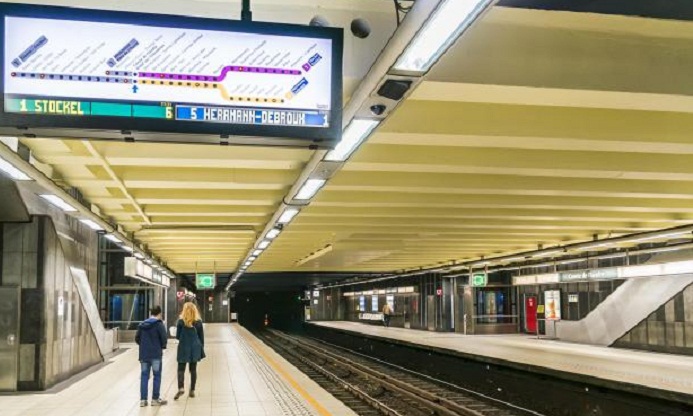"The advice for the population is to avoid places where a lot of people come together like shopping centres, concerts, events or public transport stations wherever possible," a spokesman for the government`s crisis centre said.
He declined to say what specifically prompted the new alert.
A statement on the centre`s website said it had recommended closing the underground rail network until Sunday and the municipal transport authority tweeted that stations on the four main metro lines were closed "by order of the police".
The crisis centre website said it was calling on local authorities to cancel large events, urge people to avoid crowds, postpone soccer matches, close the Brussels metro for the weekend and stepping up the military and police presence.
Suspected militant Salah Abdeslam, 26, returned home to Brussels from Paris after the attacks, when his elder brother Brahim blew himself up at a cafe.
Fears of the risk he still poses prompted the cancellation last week of an international friendly soccer match in Brussels against Spain. The crisis centre said weekend games in the top two professional divisions should now be postponed.
The alert level for the whole country was raised following the Paris attacks to level three out of four, implying a "possible or probable" threat. Previously, only certain sites, such as the U.S. embassy, were at level three.
Belgium, and its capital in particular, have been at the centre of investigations into the Paris attacks - which included suicide bombers targeting a France-Germany soccer match - after the links to Brussels emerged. Three people detained in Brussels are facing terrorism charges.
French authorities have said the attacks were planned in Brussels by a local man, Abdelhamid Abaaoud, 28, who fought for Islamic State in Syria and was killed in the siege of an apartment in the Paris suburb of St. Denis on Wednesday.
Salah Abdeslam, who was from the same neighbourhood and is said by officials to have known Abaaoud in prison, was pulled over three times by French police but not arrested as he was driven back to Brussels early last Saturday by two of the men now in custody. As well as Abdeslam`s brother, a second man from Brussels, Bilal Hadfi, was also among the Paris suicide bombers.
The crisis centre spokesman declined to say what had led to the status change because investigations were proceeding.
"We cannot give more information... The work of federal prosecutors is still going on," he said, adding the government was assessing what extra security measures to take. Soldiers are already on guard in certain parts of Brussels, including at the institutions of the European Union headquartered in the city.
Brussels is also home to the headquarters of NATO.
The last time any part of the country was put on maximum alert was in May 2014 when a gunman shot dead four people at the Jewish Museum in Brussels. At that time, Jewish schools, synagogues and other institutions were put on level four.
The capital as a whole was last at the level four for about a month at the end of 2007 and the start of 2008, when authorities intercepted a plot to free convicted Tunisian Nizar Trabelsi. Brussels` traditional New Year fireworks display was cancelled.
Trabelsi was sentenced in Belgium in 2003 to 10 years for attempting to blow up a Belgian military base that houses U.S. soldiers. He was extradited to the United States in 2013.
The government`s four-level alert system has been in place since 2006.
More about:
















































